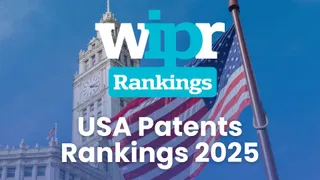
Senators unveil bill to close 'patent gap' faced by women
Proposed legislation aimed at closing the gap that women and minorities face when procuring patent rights could direct the United States Patent and Trademark Office (USPTO) to collect demographic data from applicants and make this public.
Already registered?
Login to your account
If you don't have a login or your access has expired, you will need to purchase a subscription to gain access to this article, including all our online content.
For more information on individual annual subscriptions for full paid access and corporate subscription options please contact us.
To request a FREE 2-week trial subscription, please signup.
NOTE - this can take up to 48hrs to be approved.
For multi-user price options, or to check if your company has an existing subscription that we can add you to for FREE, please email Adrian Tapping at atapping@newtonmedia.co.uk

